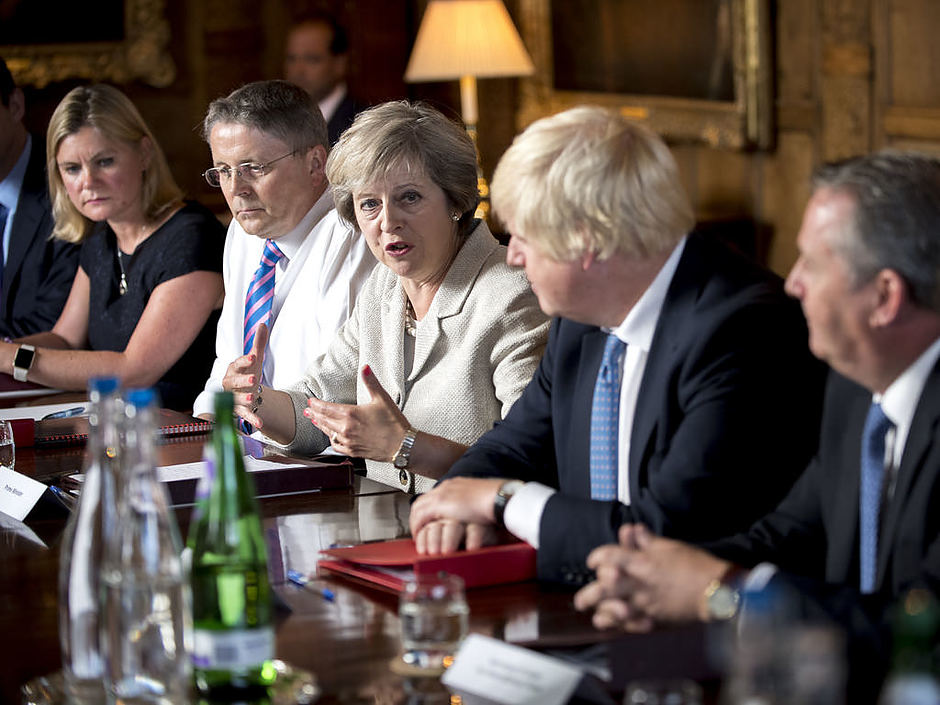Cabinet not unanimously behind May while Brexiteers are discussing whether to try and challenge her

As expected, PM Theresa May got support for her Brexit deal from the Cabinet. While this was expected, given what the media reported beforehand, it seems like it was not as easy as we had expected. Theresa May said it was a "collective" not a "unanimous" decision, suggesting that some ministers were against. The BBC reports as many as nine ministers probably argued against the deal. Also, we cannot rule out resignations from the Cabinet either already today or over the coming days.
The withdrawal text has also been released. On financial services, the UK and the EU will recognise each other's financial regulations, so some sort of equivalence, which the EU cannot pull out of overnight, according to Bloomberg. Banks would still lose a financial passport to the EU's internal market for financial services.
As anticipated, there will be a review mechanism, which before 1 July 2020 needs to determine whether an agreement on a permanent deal can avoid activating the backstop. Otherwise, the options are to either activate the UK-wide backstop (the UK stays in the customs union [called a single customs territory, see Article 6] including "level playing field" conditions and Northern Ireland obeying many single market rules; the European Court of Justice will continue to have jurisdiction in the UK in certain areas) or extend the transition period for an unspecified period of time (Articles 3 and 132). The UK cannot decide this itself, both sides need to agree. Also, if the UK wants to leave the customs backstop, it needs to be a joint decision with the EU (something the Brexiteers, even the softer ones, have been very critical towards). The UK can notify the EU that it thinks the backstop is no longer needed (Article 20) and the UK and the EU would discuss it at a meeting held no longer than six months afterwards. Still, the Withdrawal Agreement says that the aim is still to sort things out in a permanent deal and that the intention of the withdrawal deal is that it should "only apply temporarily".
We still expect it to be smooth sailing for the EU leaders to give their consent to the deal when the extraordinary EU summit on Brexit takes place likely on 25 November. The real test is still whether it can pass the UK House of Commons. A date is expected to be held in mid-December (10 December has been reported). The problem for Theresa May is that both hardliners, Theresa May's supporting party DUP, the Labour leadership (see The Guardian), LibDems and the Scottish National Party have said they are voting against the deal. That means PM Theresa May needs support not only from the moderate Conservatives but also some Labour MPs. May will probably tell them that it is this deal or nothing, so the strategy is that the Labour MPs would fear a "no deal" Brexit scenario so much that they will vote in favour of her deal.
Download The Full Brexit Monitor
Author

Danske Research Team
Danske Bank A/S
Research is part of Danske Bank Markets and operate as Danske Bank's research department. The department monitors financial markets and economic trends of relevance to Danske Bank Markets and its clients.

















